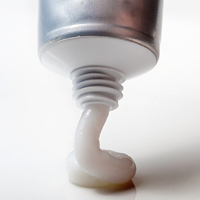If you suffer depression related to psoriasis or other skin disorders, it’s not just in your imagination and you’re not alone. To be clear, clinical depression is often diagnosed based on the following symptoms:
- An inability or extreme reluctance to get out of bed in the morning
- Low energy levels
- Lack of focus
- Disinterest in the things that you typically enjoy

If you’re suffering from a skin condition, it’s important to be on the lookout for these symptoms. The idea that eczema and psoriasis are linked to depression may sound odd to somebody who has never dealt with a serious skin disorder, but it’s all too real for the people who are actually going through it. There have been studies linking depression to skin disorders.
It’s not that surprising when you think about it. When dealing with something like eczema, you don’t look the same in the mirror, you may suffer with low self esteem. Many people may be reluctant to even go out in public due to the symptoms of eczema or psoriasis. Add to this nutritional deficiencies that go hand in hand with a skin disorder and you have a perfect storm for depression.
People who have psoriasis tend to use anti-depressant medication at a notably higher rate than people who do not have to deal with skin disorders and disease. Fortunately, there are alternatives to taking pills to improve your mood.
It has been noted that patients who properly manage their skin conditions tend to be less reliant on pills. Even when it comes to treating the depression itself, a change in diet, more exercise and plenty of sunlight can help to keep depression at bay. Even switching from sodas and coffee to water and tea can help to stabilize your moods and keep you from becoming depressed.
A few methods for treating your skin disorder that you may want to consider include:

Topical Treatments
Topical treatments can make the difference in many cases. For several, topical treatments such as creams alone can help to greatly reduce the appearance of eczema and psoriasis. There are also cases where more extreme measures are called for, of course. It’s a good idea to lean towards more natural topical treatments and stay away from gluten products, sunflower oils and olive oil.
Creams and lotions that focus on skin barrier optimization, or SBO, focus more on essential skin lipid deficiencies and replacement. The science behind this formula is to help the skin actually repair itself. Ceramides play a key role in achieving these results.
Systemic Drugs
Using topical treatments in tandem with systemic drugs can make a tremendous difference in some cases, clearing up eczema and psoriasis quickly, and helping to reduce depression along with it.
Phototherapy
The use of light therapy along with topical treatments on the skin can do a lot of good. Incidentally, there are also SADS lamps that can be used to help treat depression.
You know that it’s important to take care of your skin. It is after all, the largest organ of the body. It’s also important to take care of yourself. If you feel depressed, switch your daily routine up a bit and see if that helps. If it doesn’t, see somebody about your depression. Emotional conditions can do just as much harm as physical conditions.
+Dr.Lee Lee Eberting is a board certified dermatologist and is a past fellow of the National Institutes of Health.She writes regularly at cherylleemd.com



